
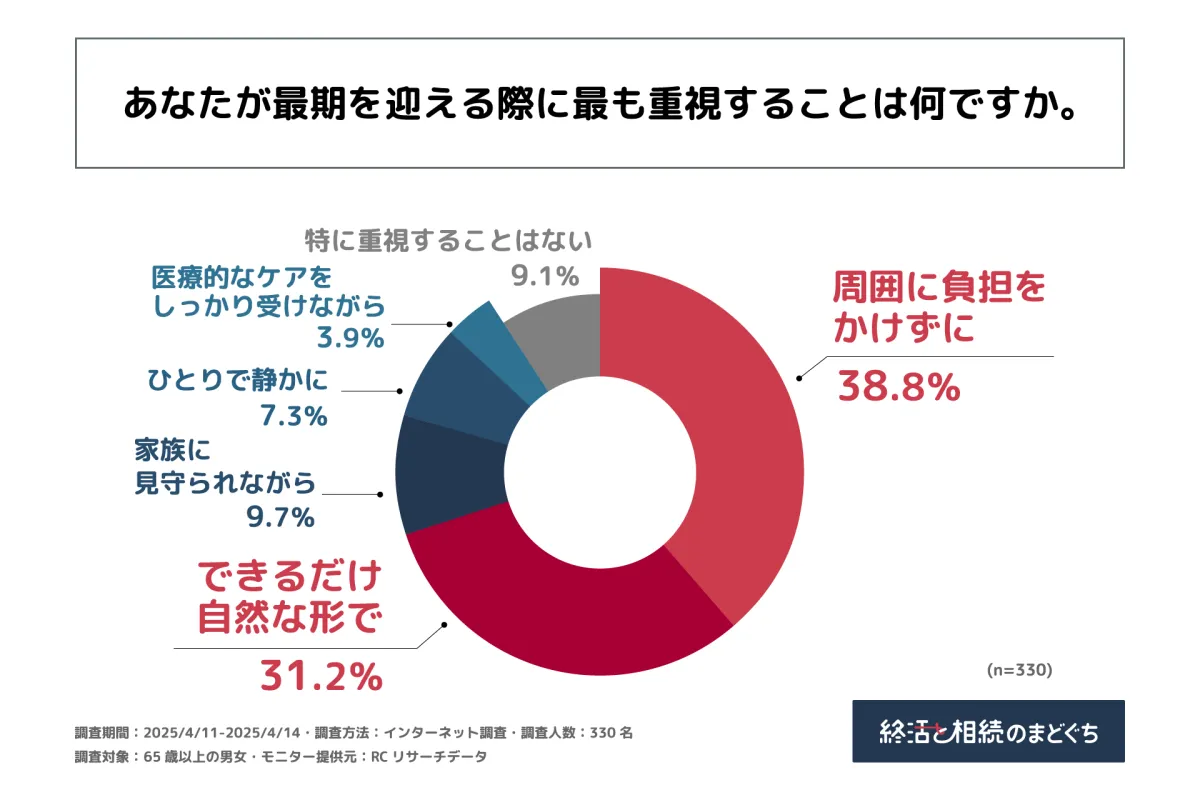
Understanding the Ideal End-of-Life Preferences of Seniors Over 65 in Japan
Insights into Senior Preferences for End-of-Life
A recent survey conducted by Shukatsu no Madoguchi Co., based in Shinjuku, Tokyo, sheds light on the attitudes and preferences of individuals aged 65 and over regarding their ideal end-of-life scenario. As Japan’s population ages, with many individuals reaching seniority in an era of increased life expectancy, understanding these preferences becomes crucial.
Background
As 2025 approaches, the Baby Boomer generation will enter the ranks of late elderly individuals aged 75 and above. With the notion of a 100-year life becoming more prevalent, perceptions of a “desirable end” are diversifying significantly. The concept of Shukatsu, or pre-death preparations, has gained traction, prompting Shukatsu no Madoguchi to conduct a survey focusing on the elderly demographic to understand their thoughts on what constitutes their ideal end-of-life experience.
Survey Highlights
- - Location Preferences: A significant portion of respondents expressed a desire for specific locations to spend their final moments, with 46.7% indicating no specific thoughts, while 38.5% preferred at home, and 8.8% at a hospital.
- - Key Priorities: When asked what they prioritize most while facing the end, the leading responses were to avoid being a burden to others (38.8%) and to have a natural passing (31.2%). Only a small percentage (9.7%) wished to be surrounded by family.
- - Burial Preferences: Among those who have wishes regarding afterlife rituals, 39.7% had no specific preferences; however, 22.4% favored scattering remains or natural burials, while 18.5% preferred traditional burial.
- - Willingness to Prepare: About half of the respondents indicated they would like to leave behind a will or an ending note, primarily to alleviate any potential burden on their families.
- - Reasons for Documenting Wishes: The top three reasons for wanting to leave the documentation were: (1) to prevent burdening family (70.8%), (2) to have a peaceful end without worries (19.9%), and (3) to ensure their funeral reflects their wishes (6.2%).
- - Consultation Availability: Alarmingly, nearly 30% of those wishing to prepare documents felt they had no one to turn to for advice regarding death preparations.
Detailed Observations
Locations at the End of Life
When focusing on preferences for places to die, more than half of those surveyed demonstrated a desire for a particular setting. Notably, while the majority had not fully decided, choosing to pass at home or in a familiar setting emerged as commonly echoed sentiments among the elderly.
Key Priorities to Consider Before Dying
Survey results illustrated that the overarching concern among seniors is to avoid causing burdens to loved ones. This reflects a deep-rooted cultural value in Japan, emphasizing harmony and care for family even in life's final chapter. Moreover, the desire for a natural passing showcases a growing trend toward more personalized and less conventional end-of-life choices.
Burial Wishes
The results surrounding posthumous preferences indicate a shift away from traditional practices towards more eco-conscious options like scattering ashes, aligning with broader environmental values present in contemporary society. Seniors appear to seek a means of finality that harmonizes with nature, reflecting evolving societal norms regarding death and remembrance.
The Importance of Documentation
The findings showcase a notable percentage of seniors wishing to document their end-of-life preferences, underscoring the importance of thoughtful family planning to prevent future distress and confusion during an emotional time. The desire for wills or ending notes further signifies an understanding among the respondents of their role in easing the burden on their families.
Lack of Support Systems
It’s concerning to find that roughly one-third of those wanting to prepare documented wishes report a lack of consultative support. This gap points to an essential need for accessible resources and services catering to seniors, ensuring they can comfortably express their desires regarding end-of-life issues.
Conclusion
The survey reveals a critical understanding of what the senior community values when contemplating their ideal end-of-life experience. The commitment to minimizing family burdens and preferring natural methods highlights the evolving landscape of end-of-life planning in Japan. Shukatsu no Madoguchi stands prepared to assist in facilitating these discussions, ensuring that seniors have access to the resources needed to articulate their final wishes without added anxiety, supporting families during such delicate life transitions.
For those interested in exploring end-of-life planning or seeking guidance, Shukatsu no Madoguchi offers an array of services tailored to assist with Shukatsu and inheritance issues. For further information, please visit their website: Shukatsu no Madoguchi.
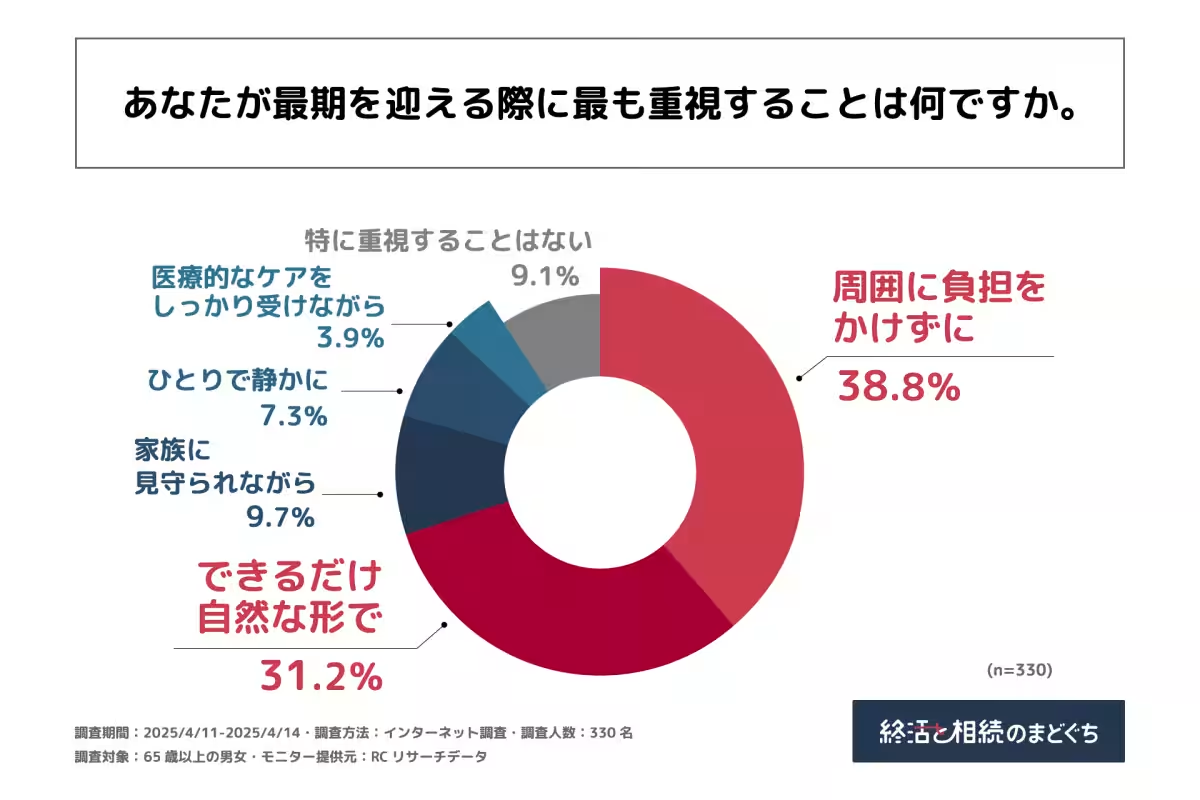
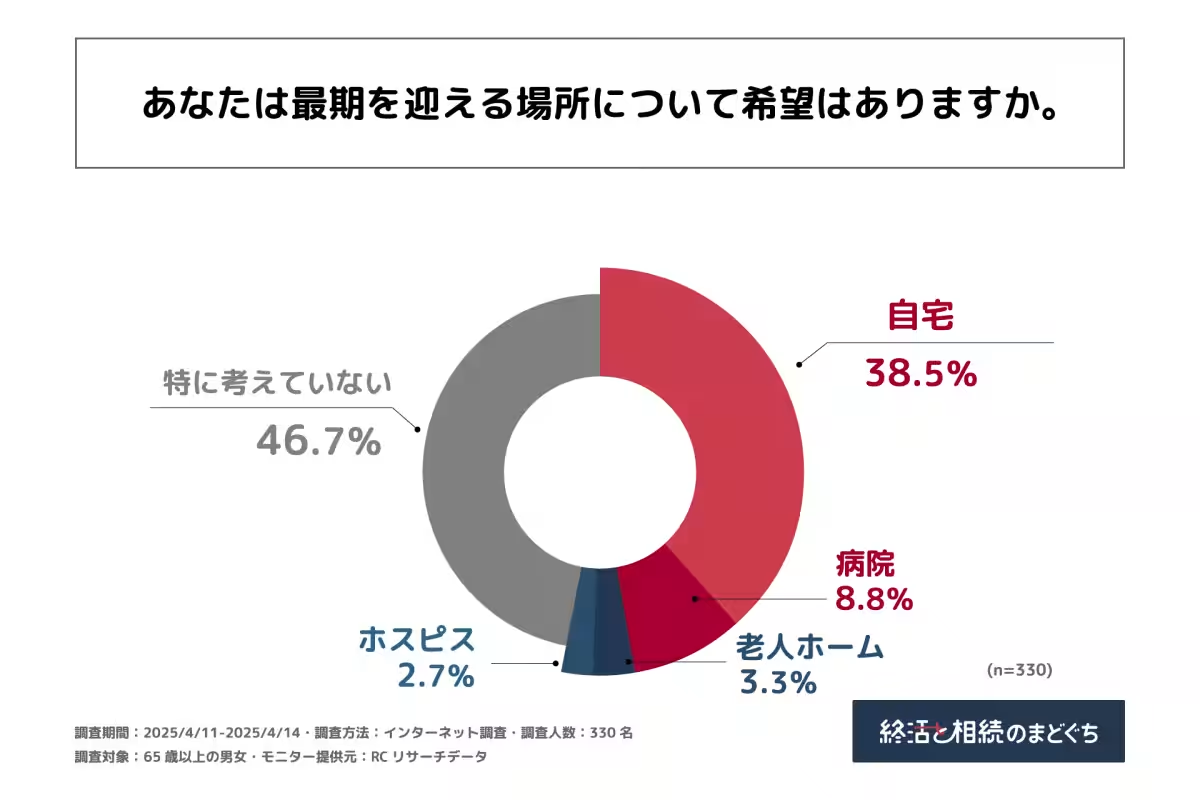
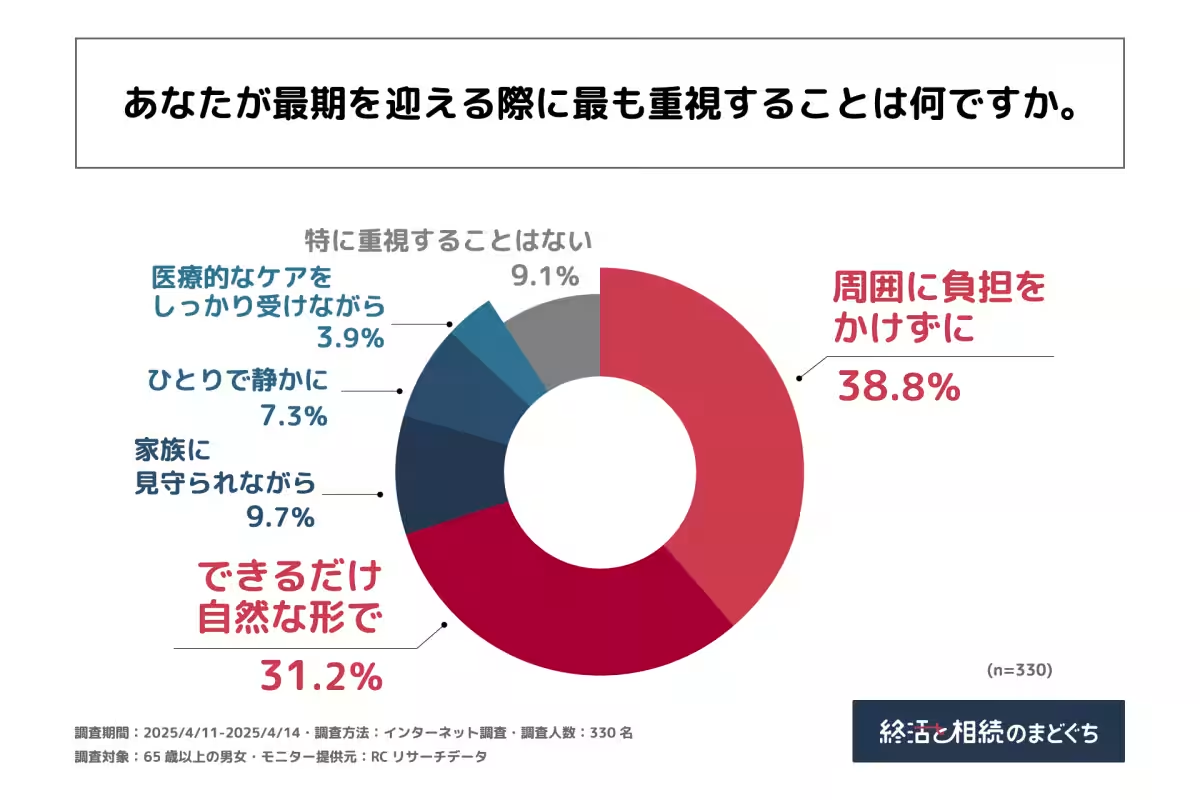
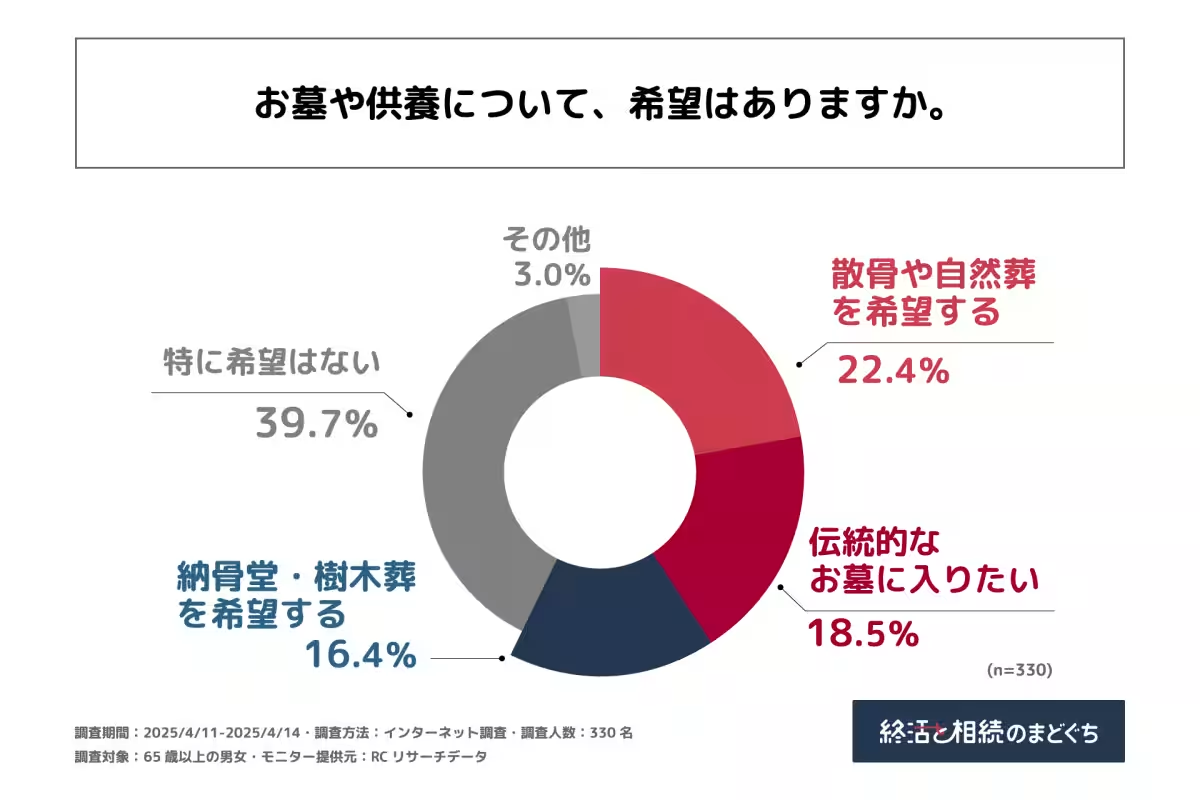
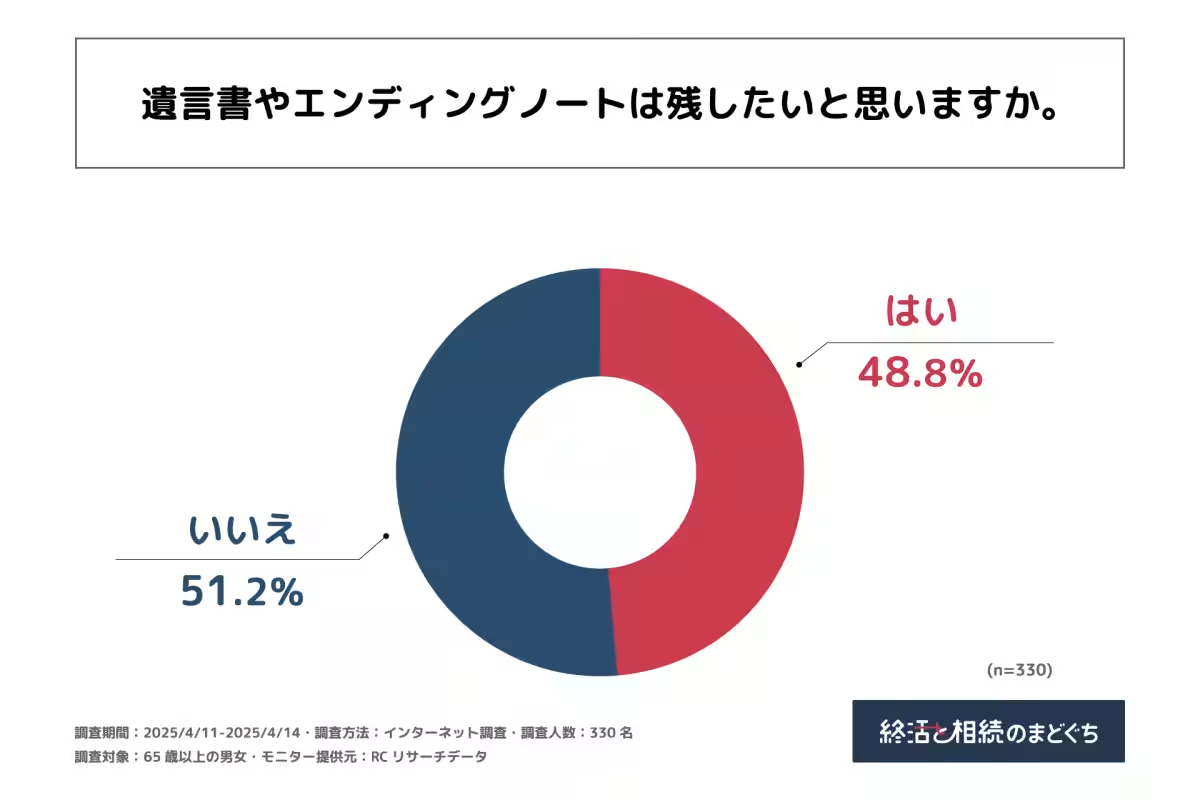
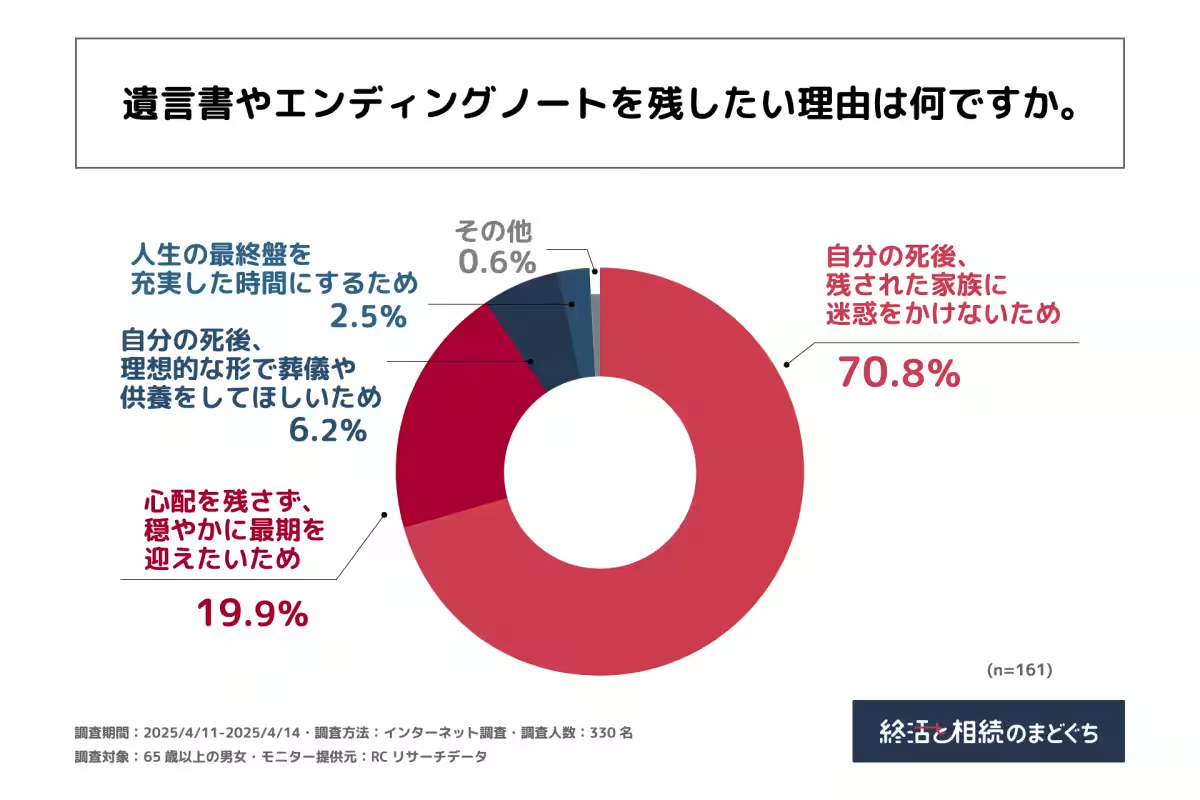
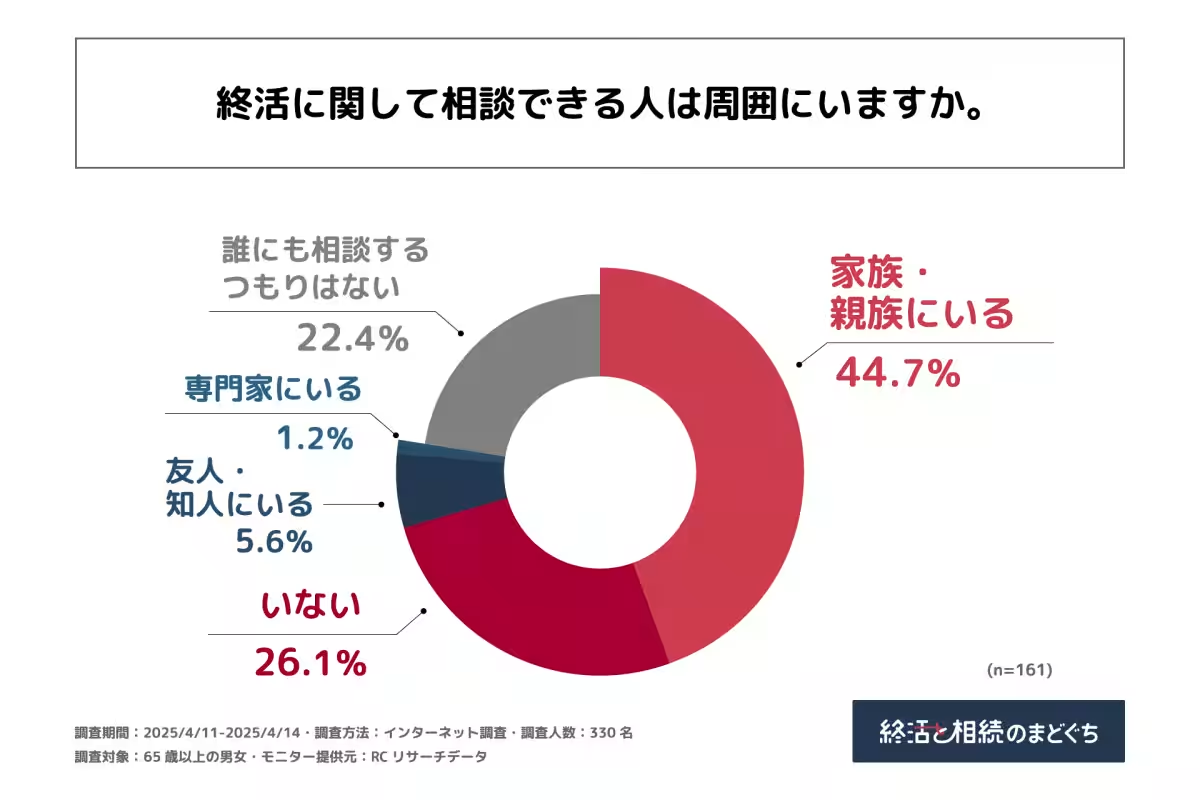

Topics Health)










【About Using Articles】
You can freely use the title and article content by linking to the page where the article is posted.
※ Images cannot be used.
【About Links】
Links are free to use.